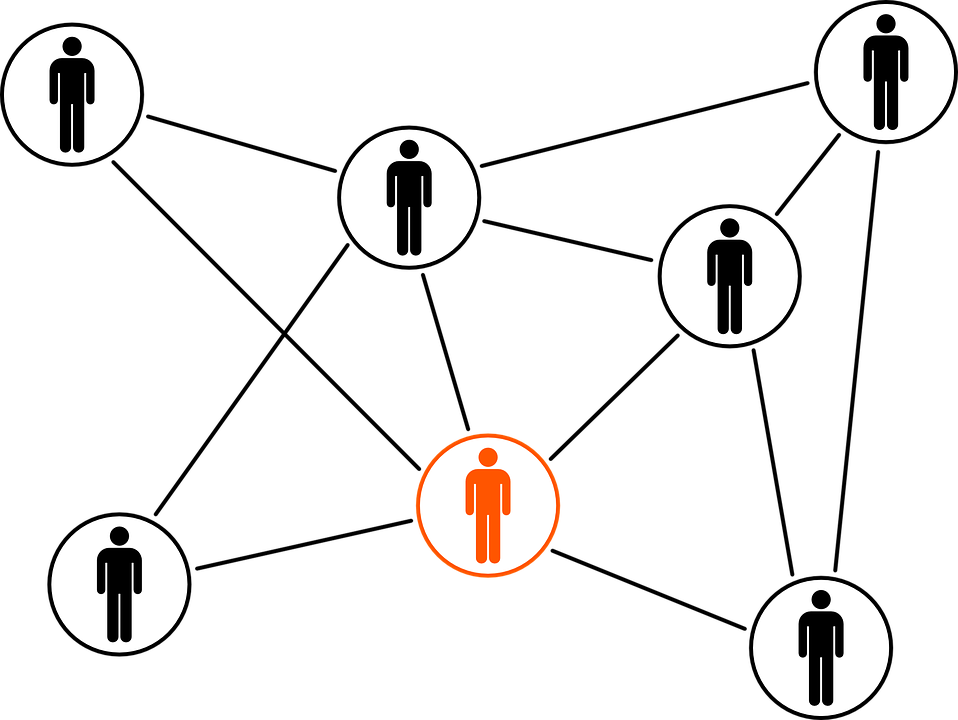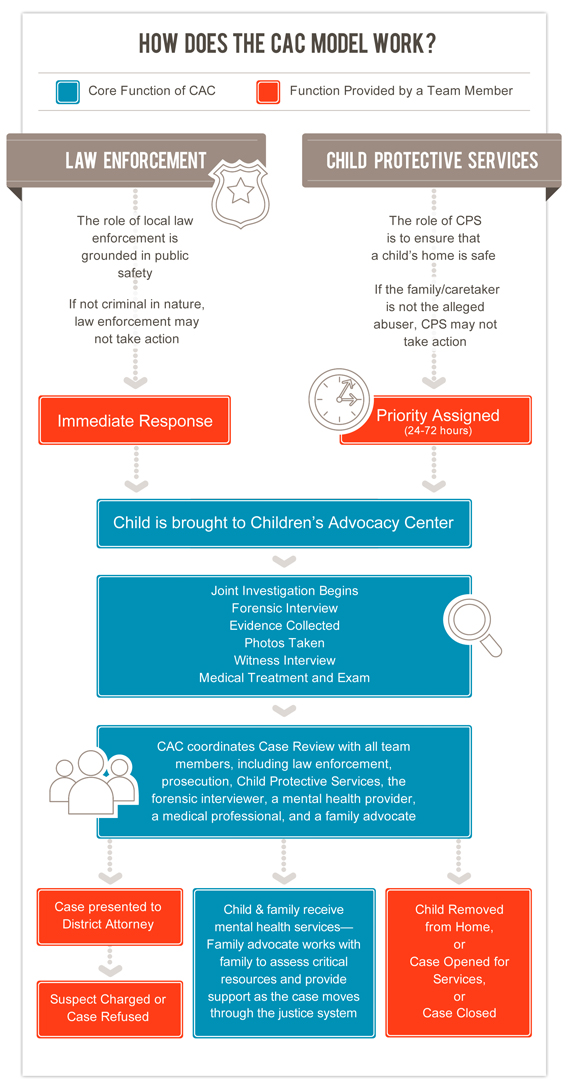To understand what a Children’s Advocacy Center (CAC) is, you must understand what children face without one. Without a CAC, the child may end up having to tell the worst story of his or her life over and over again, to doctors, cops, lawyers, therapists, investigators, judges, and others. They may have to talk about that traumatic experience in a police station where they think they might be in trouble, or may be asked the wrong questions by a well-meaning teacher or other adult that could hurt the case against the abuser.
By coordinating the response of agencies like law enforcement, child protective services, prosecutors’ offices, advocates, mental health and medical professionals CACs help ensure that when a child discloses abuse, they are not re-victimized by the very systems designed to protect them. CACs help coordinate care and investigation from first report to conviction and beyond, while keeping the child at the center of everything the team does.

At its core, the model is about teamwork—bringing the agency professionals involved in a case together on the front end—and about putting the needs of the child victim first. CACs provide an array of compassionate, professional, trauma-informed services to children and their families.

